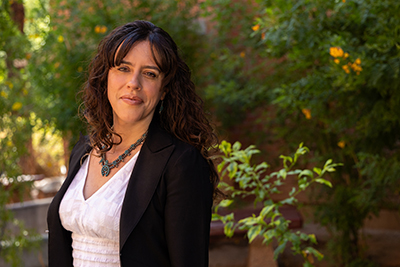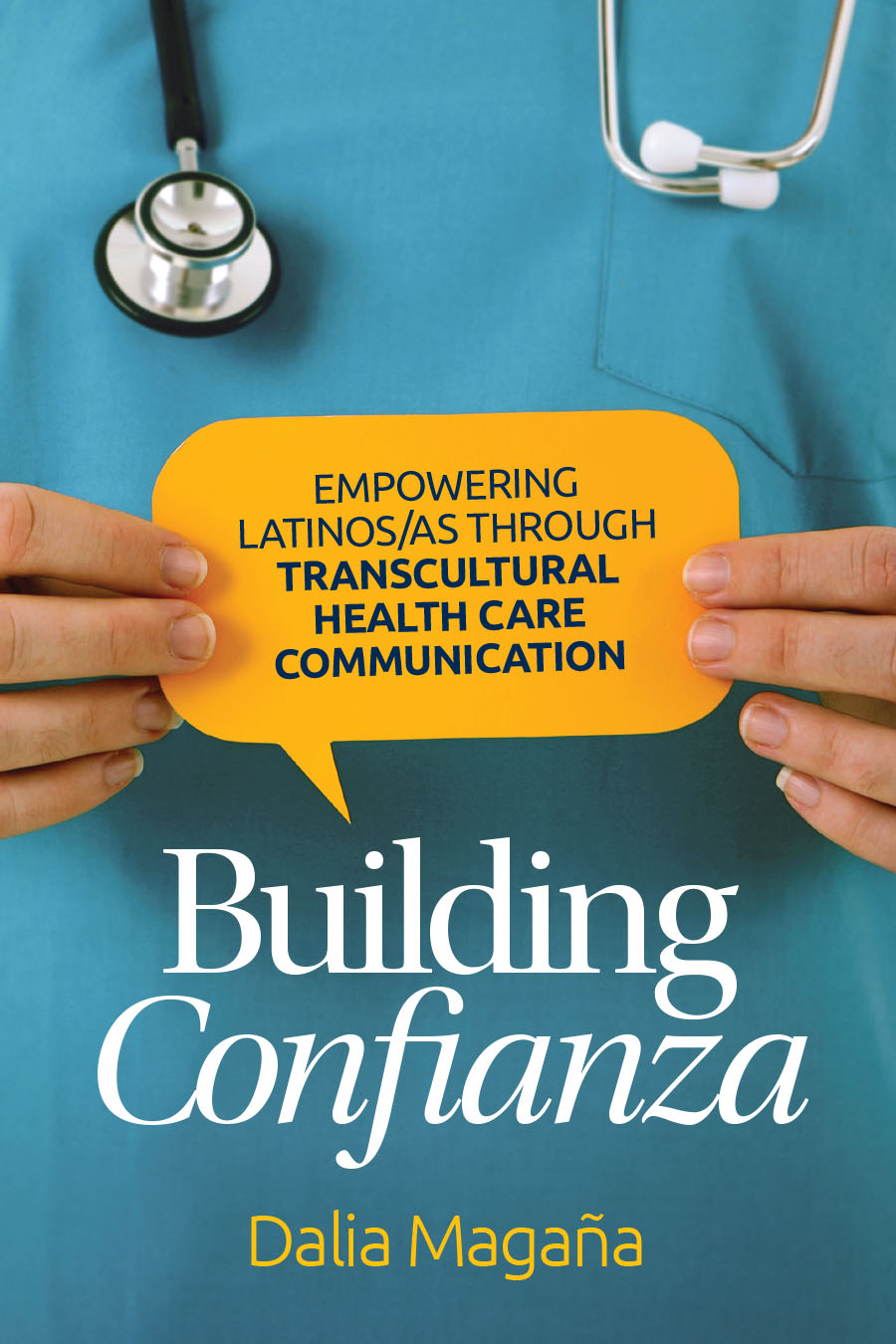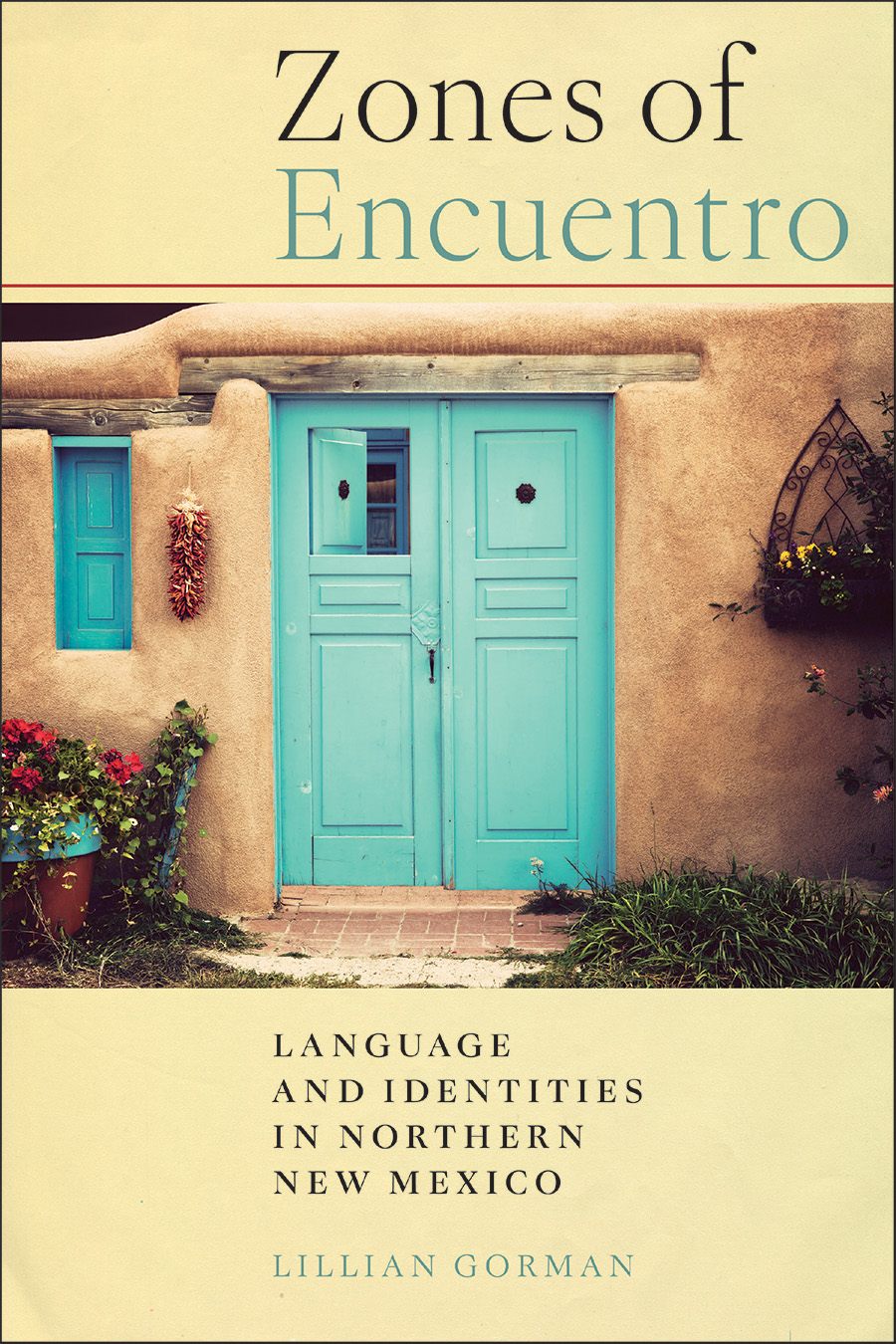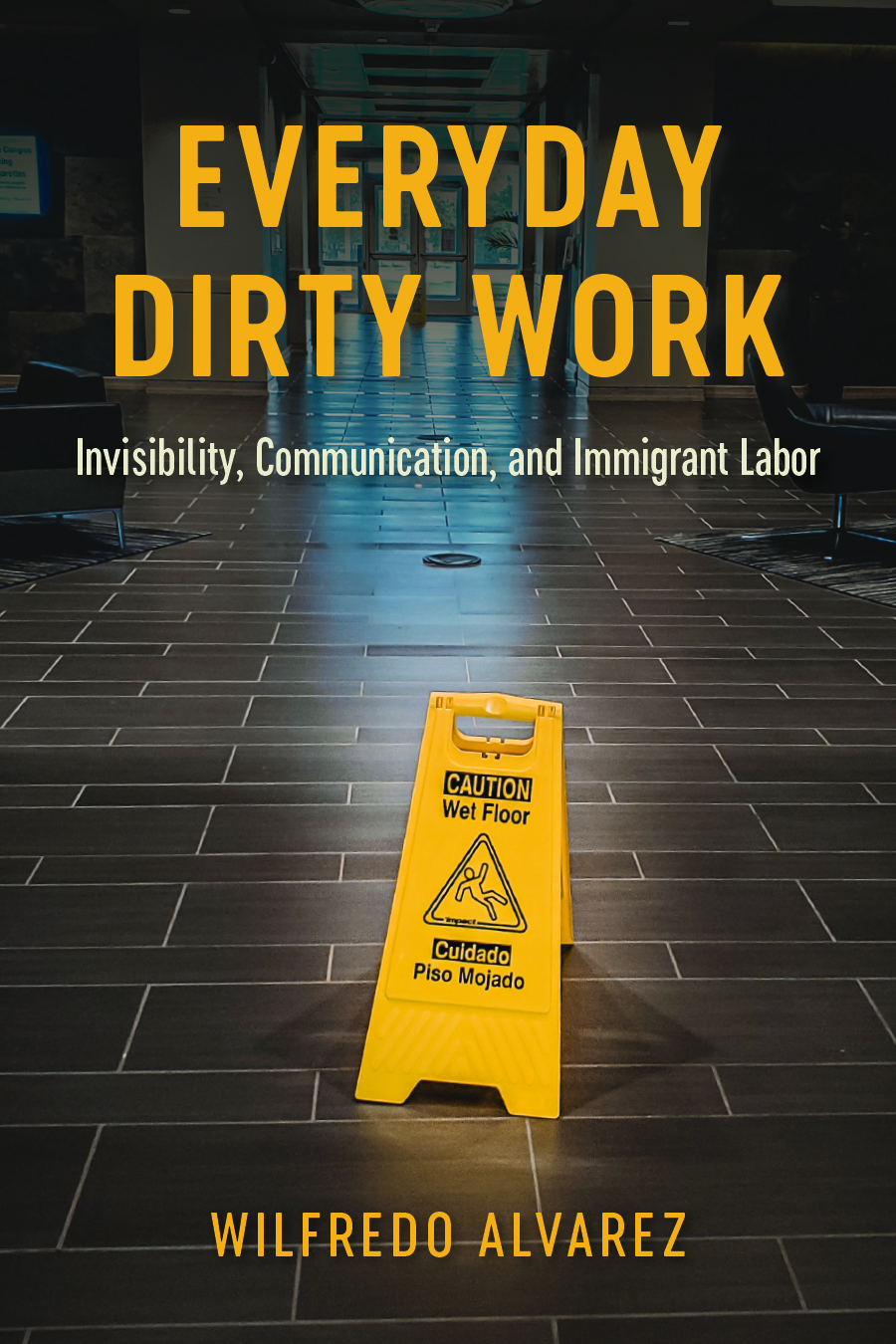Winner, 2025 New Mexico Book Awards, Multicultural Category
Finalist, New Mexico Book Awards, BIPOC Author or Subject Category and First Book Category
Zones of Encuentro reviewed in Rocky Mountain Review
“Gorman’s most significant intervention in Zones of Encuentro is historicizing and grounding her study with ideas about land. While scholars often theorize language with/as land, Gorman provides a corpus of data to show how New Mexico’s ethnoracial and migrant histories have shaped New Mexicans’ views about language and identity.” —Dolores Inés Casillas, author of Sounds of Belonging: U.S. Spanish-Language Radio and Public Advocacy
“This interdisciplinary and innovative work looks at how communication and community intertwine as Spanish speakers with different backgrounds come together, sometimes clashing and sometimes blending to form new zones of encuentro. The use of testimonios gives voice to the people included and highlights their linguistic and ideological negotiations.” —Damián Vergara Wilson, coauthor of Language Ideologies and Linguistic Identity in Heritage Language Learning
Working at the intersection of Latina/o/x cultural studies, sociocultural linguistics, and Chicana feminist studies, Lillian Gorman’s Zones of Encuentro takes an in-depth look at the cultural and linguistic interactions between two distinct Latina/o/x communities in the region: Nuevomexicanos (Hispanic people who trace their presence in the region to colonial times and whose families have historically spoken Traditional New Mexican Spanish, or TNMS) and first-generation Mexicano immigrants (who tend to speak Mexican Spanish). Gorman examines the everyday lived language experiences and ethnolinguistic identities of Mexicanos and Nuevomexicanos together, specifically through the case of mixed Mexicano-Nuevomexicano families. Through an interdisciplinary critical reading of ethnographic data, pláticas (informal conversations that gather family and community knowledge), interviews, articles, and historical memoirs, Gorman analyzes language ideologies, identity formations, and language practices by exploring complex spaces of encounter within Mexicano-Nuevomexicano families. Zones of Encuentro complicates homogeneous notions of language and identity and contemplates what a shared cultural and linguistic homeplace looks like for Mexicanos and Nuevomexicanos in northern New Mexico.

Lillian Gorman is Associate Professor of Latina/o/x cultural studies and sociolinguistics in the Department of Spanish and Portuguese at the University of Arizona, where she directs the Spanish as a Heritage Language Program. She has contributed to several edited collections related to language and identity in US Latina/o/x communities.
Contents
List of Illustrations
Agradecimientos
Introduction Encuentros, Desencuentros, and Northern New Mexico Shared Homeplaces
Chapter 1 Recontact Zones: Generational Complications, Language Recovery, and Transculturations
Chapter 2 From Language Shift to Language Shaping
Chapter 3 The Weight of Words: Spanish Language Ideologies, Lexical Choices, and Authenticity in Mexicano-Nuevomexicano Families
Chapter 4 Disjunctures and Difference: Theorizing the Mixed Identities of Mexicano-Nuevomexicanos
Chapter 5 “The Spanglish Lives We Live”: Reframing New Mexican Spanish through Spanglish and Contemplating Ethnolinguistic Futures
Conclusion Herencia, Heritage, and Latino/a/x Homes
Appendices
Bibliography
Index
Related Titles:

Building Confianza
Empowering Latinos/as Through Transcultural Health Care Communication
Dalia Magaña



